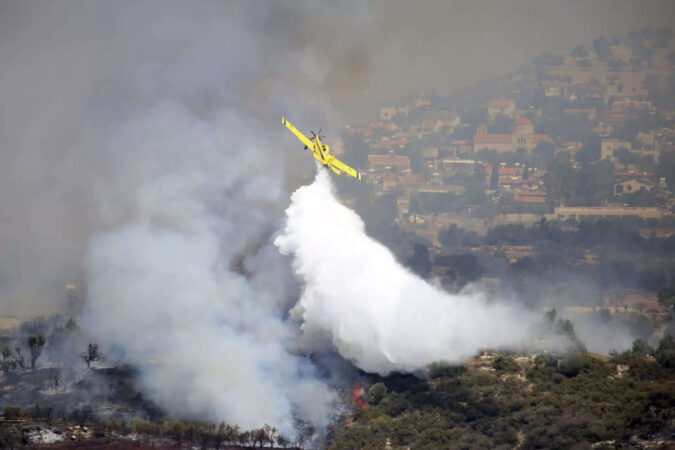The wildfire, currently being tackled by over 800 firefighters, started on Saturday in the municipality of Odemira, in the Alentejo region, but has since spread south towards the Algarve, one of Portugal’s top tourist destinations.
High temperatures and strong winds are complicating efforts to combat the flames, which have destroyed around 6,700 hectares of land. Shortly before sunset on Monday, the sky in Odemira turned dark as a huge smoke cloud filled the air.
Odemira’s mayor, Helder Guerreiro, called the situation “critical, difficult and complex” while Civil Protection commander Jose Ribeiro said there was a “lot of work” ahead to bring the wildfire under control.
A total of 19 tiny villages, four tourist accommodations and a camping site have been evacuated out of precaution. Several roads have been blocked off, authorities said.
Southern European countries such as Portugal have been grappling with record-breaking temperatures during the peak summer tourist season, prompting authorities to warn of health risks.
Scientists say heat waves are becoming more frequent, intense and spread out across seasons due to climate change.
Portuguese weather agency IPMA on Monday put six districts in the country, including the capital, Lisbon, on red alert for extreme heat until midnight.
Authorities have declared more than 120 municipalities across Portugal at maximum risk of wildfires.
“The weather conditions we are going to experience in the coming days means any small occurrence (fire) could become a big one,” Civil Protection secretary of state Patricia Gaspar told a news conference.
Three districts in Portugal’s north were placed under red alert on Tuesday as temperatures were expected to reach 41 Celsius (105.8 Fahrenheit) in the northern city of Castelo Branco.
